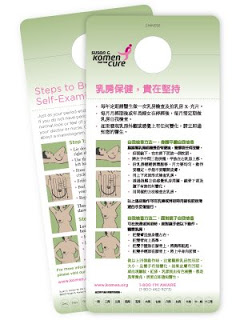Imagine this: You have a hacking cough that won’t go away. You try extra sleep, Nyquil, breathing steam, and Halls. This goes on for six months, yet you don’t see a doctor - not because you don’t want to, but you just graduated from the University of Maryland, are working an internship at a local newspaper, plus a part-time job at Office Depot. You don’t have health insurance.
But wait. You DO have health insurance. We ALL have health insurance. It is called an emergency room. Just think, you could saunter up to your local ER and spend eight hours waiting to see a doctor who you’ve never seen before and will never see again. Will he or she accurately diagnose you with Hodgkin lymphoma? Who knows, but who cares? After all not only is the ER free, but it is a perfect place to catch up on soaps, learn from other ER patients how not to peel garlic with a knife, and get triage tips for gun shot wounds.
Does this sound like effective insurance to you? It does if you are John Goodman, who is healthcare policy side kick to John McCain and president of the conservative think tank the National Center for Policy Analysis. An article in today’s Dallas Morning News by Jason Roberson states:
“Mr. Goodman, who helped craft Sen. John McCain’s health care policy, said anyone with access to an emergency room effectively has insurance…
‘So I have a solution. And it will cost not one thin dime,’ Mr. Goodman said. ‘The next president of the United States should sign an executive order requiring the Census Bureau to cease and desist from describing any American – even illegal aliens – as uninsured. Instead, the bureau should categorize people according to the likely source of payment should they need care.’
‘So, there you have it. Voila! Problem solved.’”
Voila, there you have it, Mr. Goodman is an idiot and John McCain is a fool. Emergency rooms are not an effective form of insurance. While writing my book Everything Changes, I spoke with a young adult cancer patient named Seth, who at various points during his lymphoma used the ER to receive his care because he was uninsured. Mr. Goodman, could you sleep at night knowing your loved ones are using the ER as “effective” insurance? I think not. Readers, did you think that who you vote for President doesn’t matter? Well think again.
Have you or someone you know ever been uninsured? And how do you feel about McCain’s advisor’s proposal to coin use of the ER as “effective insurance”?
![]()
![]()









 “Everything Changes is, without doubt, the most forthright, emotionally sophisticated, and plain-old valuable book of its kind I've seen.”
“Everything Changes is, without doubt, the most forthright, emotionally sophisticated, and plain-old valuable book of its kind I've seen.”












